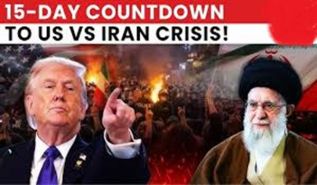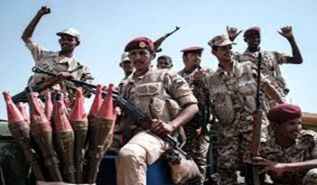بسم الله الرحمن الرحيم
The Future of Modern Warfare and the Missing Role of the Khilafah
By: Dr. Abdul Rahman Irfan – Wilayah Afghanistan
Al-Rayah Newspaper - Issue 557 - 23/07/2025 CE
The ongoing wars across various parts of the world—particularly the war between Russia and Ukraine and the conflict between Iran and the Jewish entity—clearly demonstrate that the world has entered a new and distinct phase of military and intelligence warfare. The traditional, outdated view of war, based on massive infantry forces, tanks, and artillery, is rapidly changing and collapsing. Today, powers such as the US, China, and Russia are allocating massive budgets to advanced military industries and are actively redefining the new methods of warfare. Battles on modern frontlines are no longer limited to bullets and rifles—they are battles of algorithms, artificial intelligence, drones, cyber networks, and satellite waves.
In Ukraine, simple commercial drones have successfully destroyed Russian tanks and aircraft. In Gaza, the Jewish entity has carried out mass killings using thousands of AI-powered drones, and on the first day of the war, it assassinated several top Iranian military commanders. China has expanded its cyber army, and the US is investing in the next generation of laser weapons and electronic warfare.
This growing competition carries a clear and serious message for future wars: The countries that lead in military technology and defense industries will be the dominant powers. Future wars will rely less on human soldiers and more on machines that operate tirelessly, without fear, and without the need for rest. In the coming decade, humanoid robots will gradually enter the combat-operational lines of advanced armies. Autonomous systems will replace human pilots, drones will conduct reconnaissance and attack missions, and decision-making authority will be transferred to complex algorithms. In these future wars, superiority will no longer be determined by physical bravery, but by intelligence, technology, and the ability to effectively employ advanced methods and tools.
The essential question is: where do we Muslims stand in this equation? The painful reality is that today, the Islamic Khilafah (Caliphate) —which was once at the forefront of military power and battlefield innovation—no longer exists. We lack a state that not only defends the Ummah but also possesses deterrent power and military initiative.
Our history is filled with shining examples of military excellence. During the era of the Khilafah, Muslims achieved decisive victories in battles such as the Battle of the Khandaq, Mu'tah, Yarmouk, Nahavand, the conquest of Sham and Constantinople—despite facing enemies that were far superior in numbers and equipment—through precise strategy, battlefield innovation, and unwavering faith. Regrettably, today, in the absence of the Khilafah, that same Ummah has become the victim of bombings and proxy wars within its own lands.
If the Khilafah does not exist today, should we as an Ummah remain passive and merely bystanders? Absolutely not. It is an obligation upon us to strive with all our strengths and capabilities to reestablish the Khilafah upon the method of prophethood. This endeavor is not merely a religious duty; It is an urgent necessity to compensate for the intellectual, political, and military setbacks of the Ummah that we suffer from.
From the Islamic perspective, the concept of i‘dad (preparedness)—as mandated in the Qur'an:
[وَأَعِدُّوا لَهُمْ مَا اسْتَطَعْتُمْ مِن قُوَّةٍ]
“And prepare against them whatever you are able of power” [Al-Anfal: 60]is not a technical stage that begins after the establishment of the Khilafah; rather, it is a continuous historical obligation for the Ummah. Preparation at all levels—from individual to collective—is a religious duty, and neglecting it is considered disobedience to the command of Allah (swt). While the complete and structured realization of i‘dad is only possible under the leadership of the Khilafah, this does not mean the Ummah bears no responsibility before its establishment.
It is essential for Muslims to begin laying the foundation for military strength by cultivating political and military awareness within the Ummah, establishing scientific networks, and forming research teams focused on military industries. We cannot wait passively for a state to form and then begin preparing. On the contrary, when the Khilafah is established, there must already be trained and prepared technical, engineering, military, and leadership teams in place, so that the Khilafah could swiftly transform from a nascent state into a global military power. This is precisely what global powers have done, and it is unworthy of the Islamic Ummah to lag behind.
It is a self-evident truth that an unprepared Ummah will hinder its state, but a prepared Ummah will elevate it to greatness and glory. We, as an Ummah, are charged with carrying the banner of Islam and leading humanity—and this leadership cannot be realized without a powerful and fully-equipped state, particularly in military, technological, and industrial capabilities. The Ummah of Prophet Mohammad (saw) is not meant to be a mere spectator of others' power displays; rather, it must itself be the orchestrator of the greatest military and technological transformations of this century. And this path begins today, with intellectual and political work for the establishment of the second rightly-guided Khilafah (Caliphate) on the method of the Prophethood.




